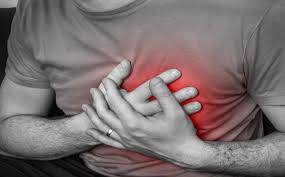
Breaking News
 Ranchers in Washington are challenging the state over a fundamental constitutional question...
Ranchers in Washington are challenging the state over a fundamental constitutional question...
 President Milei launched an account in English but it was suspended by X a few hours later.
President Milei launched an account in English but it was suspended by X a few hours later.
 The Trump Doctrine: "They Have It. We Want It. We Take It."
The Trump Doctrine: "They Have It. We Want It. We Take It."
 Event 201 Pandemic Exercise: Segment 4, Communications Discussion and Epilogue Video
Event 201 Pandemic Exercise: Segment 4, Communications Discussion and Epilogue Video
Top Tech News
 Superheat Unveils the H1: A Revolutionary Bitcoin-Mining Water Heater at CES 2026
Superheat Unveils the H1: A Revolutionary Bitcoin-Mining Water Heater at CES 2026
 World's most powerful hypergravity machine is 1,900X stronger than Earth
World's most powerful hypergravity machine is 1,900X stronger than Earth
 New battery idea gets lots of power out of unusual sulfur chemistry
New battery idea gets lots of power out of unusual sulfur chemistry
 Anti-Aging Drug Regrows Knee Cartilage in Major Breakthrough That Could End Knee Replacements
Anti-Aging Drug Regrows Knee Cartilage in Major Breakthrough That Could End Knee Replacements
 Scientists say recent advances in Quantum Entanglement...
Scientists say recent advances in Quantum Entanglement...
 Solid-State Batteries Are In 'Trailblazer' Mode. What's Holding Them Up?
Solid-State Batteries Are In 'Trailblazer' Mode. What's Holding Them Up?
 US Farmers Began Using Chemical Fertilizer After WW2. Comfrey Is a Natural Super Fertilizer
US Farmers Began Using Chemical Fertilizer After WW2. Comfrey Is a Natural Super Fertilizer
 Kawasaki's four-legged robot-horse vehicle is going into production
Kawasaki's four-legged robot-horse vehicle is going into production
 The First Production All-Solid-State Battery Is Here, And It Promises 5-Minute Charging
The First Production All-Solid-State Battery Is Here, And It Promises 5-Minute Charging
Scientists Use New 'Holy Grail' Gene Therapy to Heal Damage Caused By Heart Attacks and...

In a world first, researchers from King's College London believe they may have found a new therapy that can induce heart cells to regenerate after a heart attack.
Myocardial infarction, more commonly known as a heart attack, caused by the sudden blocking of one of the cardiac coronary arteries, is the main cause of heart failure: a condition that now affects over 23 million population in the world, according to the World Health Organization.
At present, when a patient survives a heart attack, they are left with permanent structural damage to their heart through the formation of a scar, which can lead to heart failure in the future. Fish and salamander, on the other hand, can regenerate the heart throughout life.
In a new study that was published last week in Nature, however, the team of investigators delivered a small piece of genetic material, called microRNA-199, to the heart of pigs, after a myocardial infarction – and the treatment resulted in the almost complete recovery of cardiac function one month later.
Lead author Professor Mauro Giacca, from King's College London said: "It is a very exciting moment for the field. After so many unsuccessful attempts at regenerating the heart using stem cells, which all have failed so far, for the first time we see real cardiac repair in a large animal."
This is the first demonstration that cardiac regeneration can be achieved by administering an effective genetic drug that stimulates cardiac regeneration in a large animal, with heart anatomy and physiology like that of humans.
Professor Giacca and his team joined the School of Cardiovascular Medicine and Sciences BHF Centre of Excellence of King's College London earlier this year to continue translation of these studies in patients.
Professor Ajay Shah, who is the Head of the School of Cardiovascular Medicine and Sciences at King's, said: "A treatment that helps the heart repair itself after a heart attack is the holy grail for cardiologists.

 Storage doesn't get much cheaper than this
Storage doesn't get much cheaper than this

